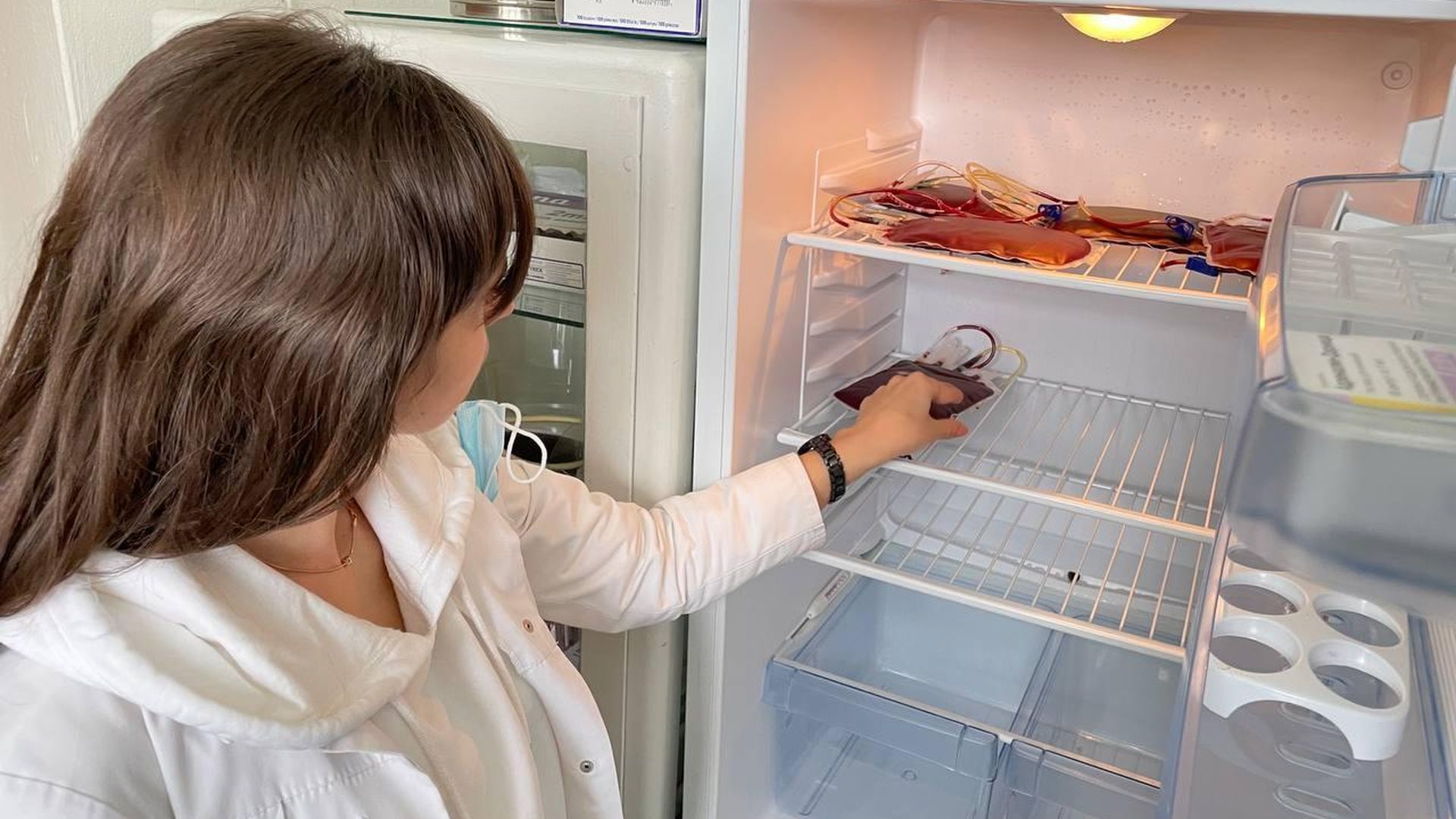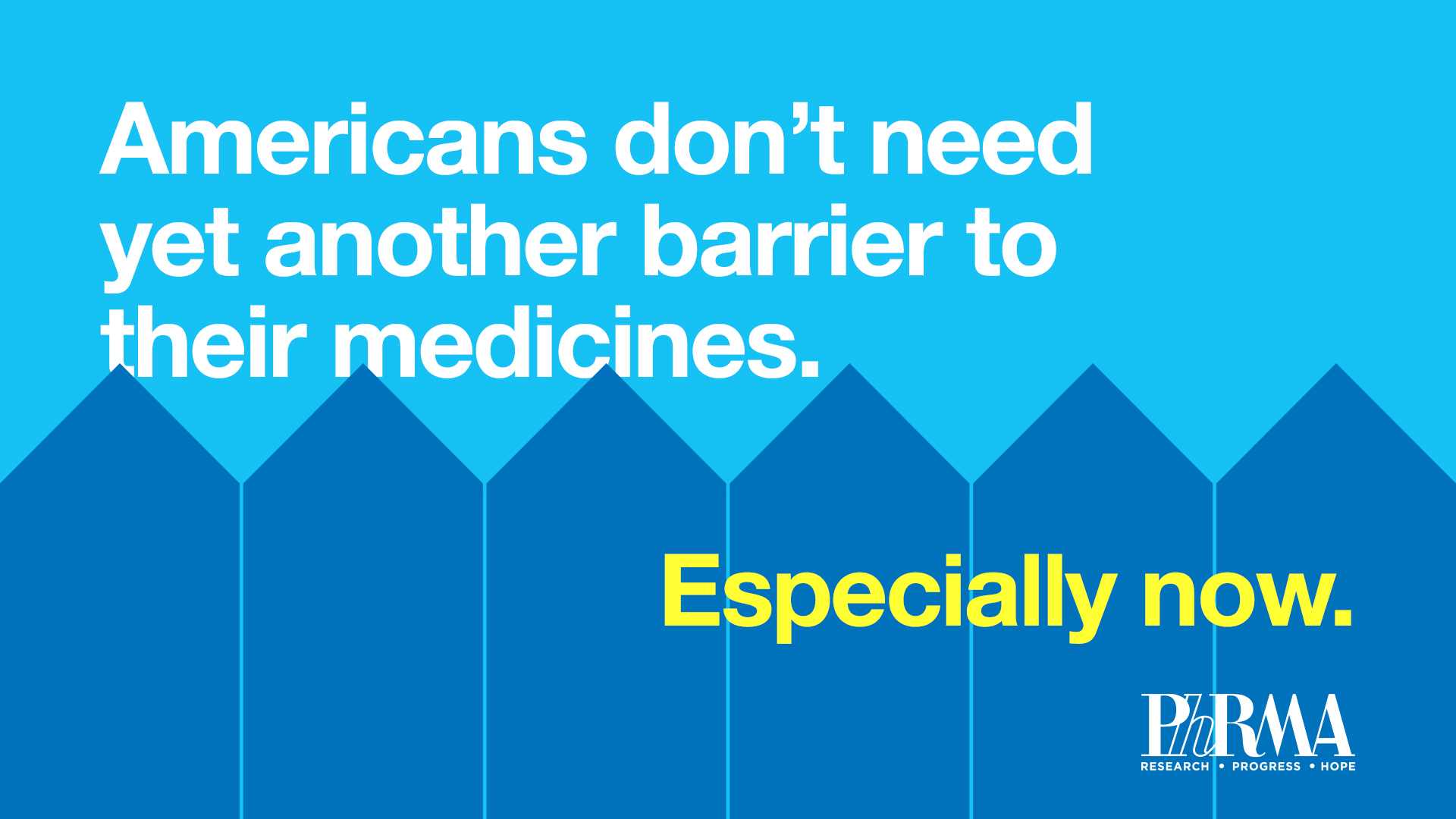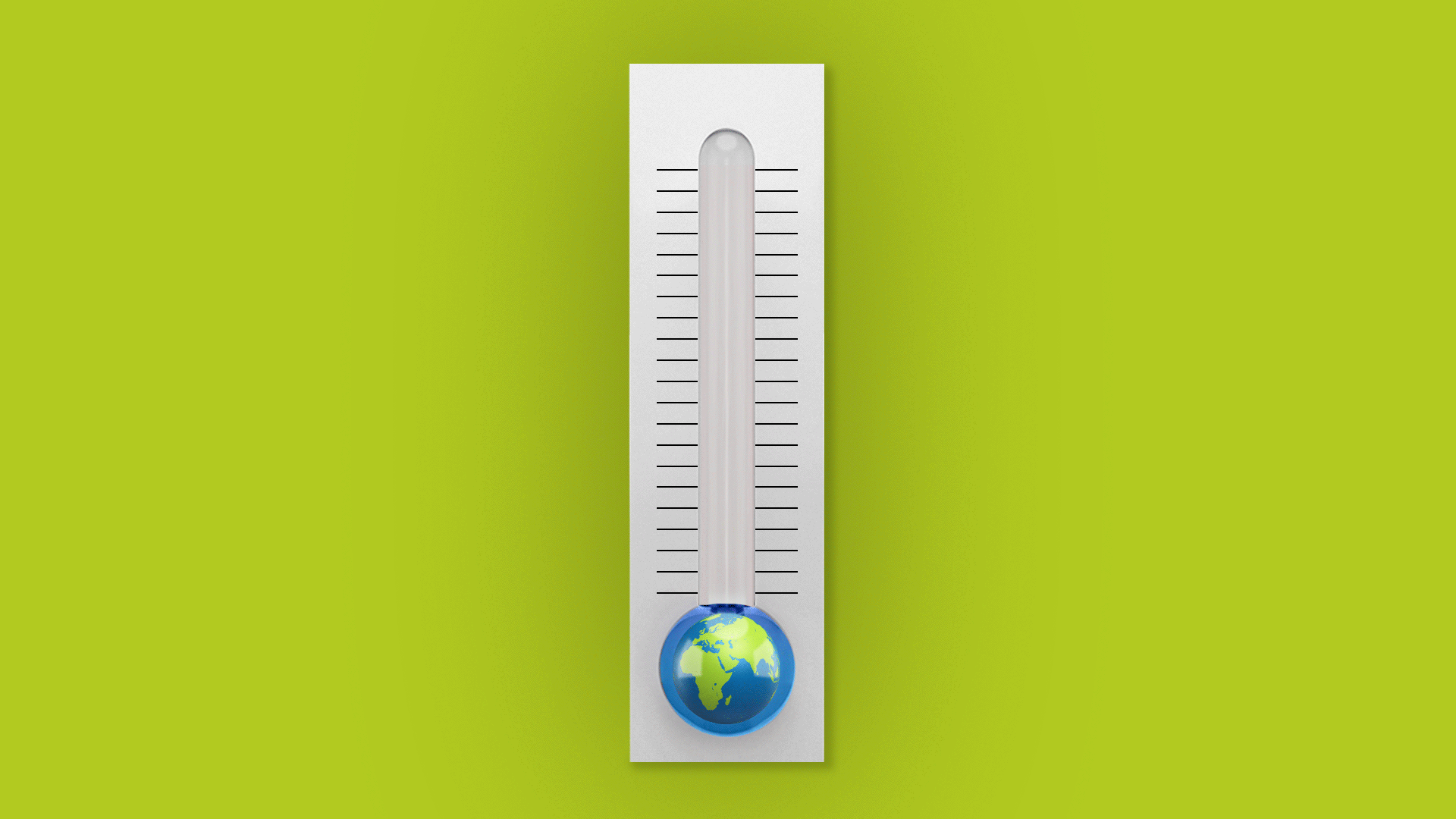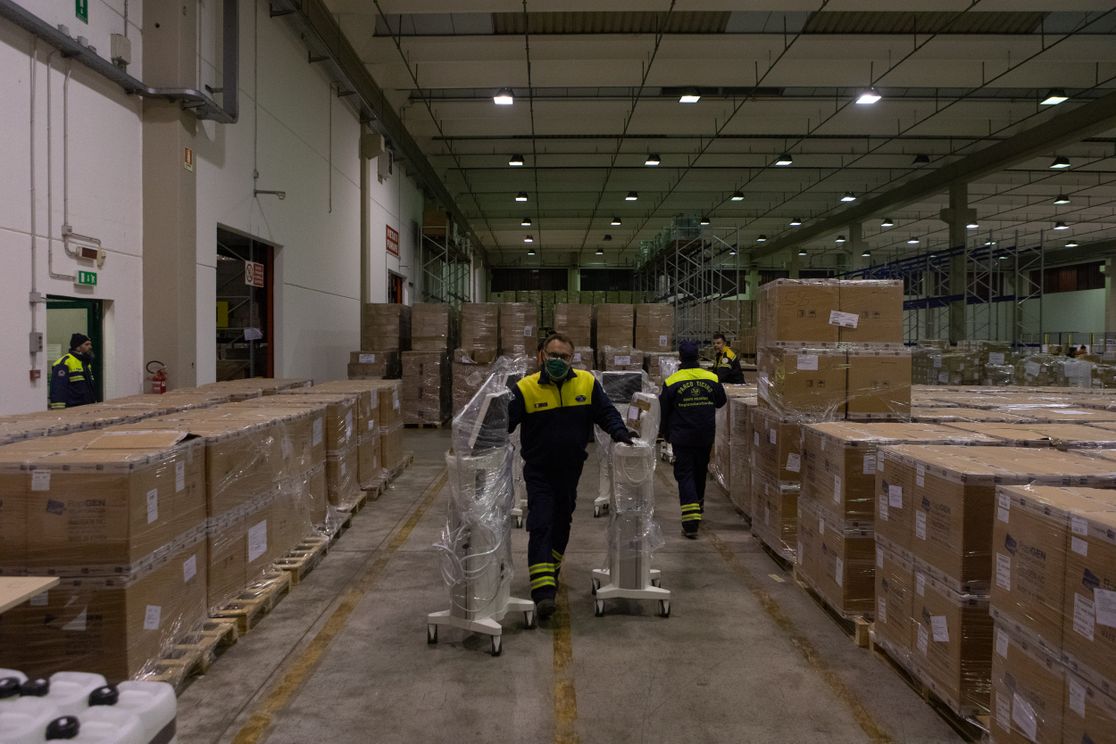| |
| |
| |
| Presented By PhRMA |
| |
| Axios Vitals |
| By Tina Reed ·Mar 07, 2022 |
| Good morning, Vitals readers. Today's newsletter is 805 words or a 3-minute read. |
| |
| |
| 1 big thing: The health worker shortage is starting to get real for Americans |
 |
|
| Illustration: Brendan Lynch/Axios |
| |
| More than half of all Americans say they've directly felt the effects of health care worker shortages, from canceled appointments to delayed surgeries, according to CVS Health-Harris Poll National Health Project data provided to Axios. What they're saying: It's "not only a problem that's been sort of hidden, but it's also causing significant sources of pain and frustration with people who really need these services," John Gerzema, CEO of The Harris Poll, told Axios. - "This isn't your typical consumer good. This is people's health," he said.
By the numbers: More than 2,000 adults were polled Feb. 10–15 and 45% said they'd had trouble scheduling appointments. More than one in three said their doctor was operating on reduced hours. - A quarter of respondents said they'd had treatments or surgeries delayed and one in five said their doctor had stopped practicing.
- 13% said their health care facilities were closing completely.
State of play: This comes as more than 40% of respondents said they are reconnecting with the health system and reassessing their care after pandemic lockdowns and restrictions. Between the lines: Timely health care access is also particularly important since more than one in five Americans said they've skipped an annual checkup during the pandemic. The intrigue: Consumers are less likely to tolerate or understand the source of the delays. - For instance, a Harris poll from January found that more than four in ten Americans thought supply chain-related disruptions are unacceptable.
The bottom line: "Patients are losing patience," Gerzema said. Share this story. |
    |
| |
| |
| 2. COVID antibody drug too often goes unused |
 |
|
| Illustration: Brendan Lynch/Axios |
| |
| The COVID antibody drug Evusheld, which the FDA authorized in December to help protect immunocompromised people before they're exposed to the virus, is often going unused because of confusion among health care providers, the New York Times reports. Why it matters: The drug, made by AstraZeneca, is seen as a critical tool for some of the most vulnerable Americans or those who can't be vaccinated — but only if they can access it. By the numbers: About 80% of the available doses are unused in warehouses, or on hospital and pharmacy shelves, per the Times. - This, despite a federal database aimed to help patients and providers locate doses of the drug, which is in short supply.
- "'We didn't get any of this,'" Leanne Cook, a patient in California, said she was told by one medical provider, the Los Angeles Times reported. "And I'm like, 'No, no, you guys got doses — I can see it on this website.'"
- Cook ultimately got the drug, but it took a lot of work, savvy and added expense to do it, she said, per the L.A. Times.
What to watch: It's not the only COVID drug facing supply issues. The White House is confronting a COVID-19 budget crunch which forced it to delay buying more than 9 million doses of Pfizer's antiviral pill, STAT's Rachel Cohrs wrote on Friday. |
    |
| |
| |
| 3. Ukraine medical supplies running low |
 |
|
| A health officer shows a blood storage refrigerator with decreased blood stocks at a hospital in Mykolaiv, Ukraine, on Sunday. Photo: Abdullah Tevge/Anadolu Agency via Getty Images |
| |
| Ukrainian hospitals are struggling with shortages of blood and other supplies, including insulin, amid continued Russian attacks. - Ukraine's deputy health minister warned the country's hospitals could be unable to provide basic medical care in the near future, the Financial Times reported.
- Shortages in medical supplies, as well as food in Ukraine have worsened, adding urgency to worldwide relief efforts, the Wall Street Journal reported.
A volunteer of the Italian Civil Protection pulls two ICU artificial ventilation devices as he walks past boxes of medical supplies that will be shipped to Ukraine in Settala, Italy, on Friday. Photo: Emanuele Cremaschi/Getty Imagesx |
    |
| |
| |
| A message from PhRMA |
| Voters want Congress to address health insurance |
| |
 |
| |
| A decisive majority of Americans (86%) agree Congress should crack down on abusive health insurance practices impacting patients' access to care. Why it's important: Greater transparency and accountability within the current health insurance system. Read more in new poll. |
| |
| |
| 4. Rising risk of temperature-related deaths |
 |
|
| Illustration: Aïda Amer/Axios |
| |
| The risk of deaths due to extreme temperatures could rise significantly under a warming scenario of more than 2°C, according to a study published Monday in the journal Environmental Research Letters. Why it matters: As Axios' Andrew Freedman reported recently, peer-reviewed research the world is already on course for at least 3°C (5.4°F) of warming above preindustrial levels — and running out of time to do something about it. The new study, led by researchers at University College of London and the University of Reading, looked specifically at the impact of rising temperatures in England during the hottest days of the year. - Temperature-related deaths will increase by 42% if temperatures rise 2°C from pre-industrial levels, the study estimates.
- But the expected increase won't go in a straight line. In a scenario where global warming rises to 3°C , the risk of death would jump 75% during heatwaves.
- "The increase in mortality risk under current warming levels is mainly notable during heatwaves, but with further warming, we would see risk rise on average summer days," lead author Katty Huang, a research fellow at University College of London.
|
    |
| |
| |
| 5. While you were weekending |
 |
|
| Illustration: Aïda Amer/Axios |
| |
- We need to start addressing workers' experiences during the pandemic as trauma, drawing lessons from the support systems set up for soldiers, a group of health experts argues. (Slate)
- I'm still trying to understand what this actually means, but CVS Health filed to trademark its pharmacy and health clinics in the metaverse. (CNBC)
- Bird flu was confirmed in a chicken flock in southeastern Missouri last week. CDC officials said it doesn't present an immediate public health concern. (Associated Press)
|
    |
| |
| |
| A message from PhRMA |
| Voters want Congress to address health insurance |
| |
 |
| |
| According to a new poll, 71% of Americans would like to see Congress focus more on reducing the overall costs of health care coverage such as premiums, deductibles and copays. The reason: Many believe current health insurance coverage options are confusing and unaffordable. |
| |
| 🚀 Thanks for starting the week with us. Please tell your family, friends and colleagues they can subscribe to Vitals or any of Axios' newsletters through this link. |
 | It's called Smart Brevity®. Over 200 orgs use it — in a tool called Axios HQ — to drive productivity with clearer workplace communications. | | |











No comments:
Post a Comment